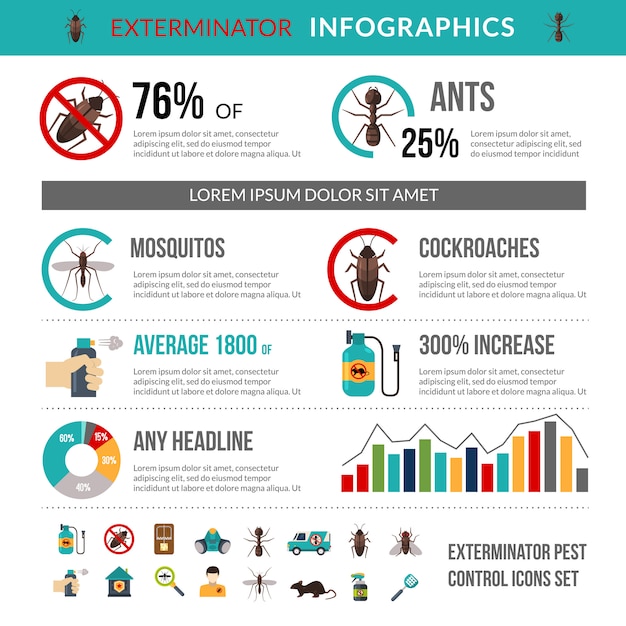The Role Of Parasite Control In Food Safety And Security And Hygiene
The Role Of Parasite Control In Food Safety And Security And Hygiene
Blog Article
Published By-Duggan Futtrup
Are you familiar with the surprise risks that pests pose to the safety and security and health of your food? From Testimonials to pests, these undesirable site visitors can contaminate your ingredients, surfaces, and storage areas.
This post checks out the crucial function of parasite control in preserving the highest possible criteria of food safety and hygiene. Discover effective methods and prevention actions that will aid you safeguard your organization, consumers, and track record.
Don't let pests endanger the top quality of your food.
The Influence of Insects on Food Security and Hygiene
In your kitchen, pests can have a significant influence on food safety and security and hygiene. These undesirable visitors, such as rats, insects, and roaches, can pollute your food, surfaces, and tools with harmful microorganisms, viruses, and parasites. They can conveniently access your cupboard, cupboards, and even your fridge, leaving droppings, pee, and hair.
Not only can they ruin your food by chewing through product packaging, but they can also spread out diseases like Salmonella, E.coli, and Listeria. Envision preparing a meal for your family, unaware that the components you're utilizing are currently infected.
It's essential to take prompt activity to prevent and manage bugs in your kitchen area. Regular cleaning, proper food storage space, and professional insect control actions are necessary to make sure food safety and security and keep a hygienic environment in your cooking area.
Effective Insect Control Methods for the Food Sector
Carrying out efficient parasite control strategies is essential for preserving food safety and security and health in the food market. By implementing these methods, you can protect against bugs from polluting the food and make sure that your products are safe for usage.
One effective technique is to frequently examine and monitor your facility for signs of insect activity. This consists of checking for droppings, nests, or any damage caused by bugs.
It's also important to seal all entry indicate avoid pests from going into the facility. Normal cleaning and sanitation are essential, as bugs are attracted to food residue and spills.
In addition, proper waste administration is crucial to stop the accumulation of food waste that can attract pests.
Preserving Hygiene Standards With Pest Avoidance Measures
To preserve health requirements, you must routinely apply bug prevention actions. By taking proactive actions to avoid pests from entering your food establishment, you can guarantee the security and cleanliness of your facilities. Below are some efficient bug avoidance steps to take into consideration:
- Seal all splits and holes: Parasites can enter with also the smallest openings. Routinely evaluate and seal any gaps in doors, windows, wall surfaces, and floorings to keep parasites out.
- Appropriate waste administration: Deal with food waste quickly and firmly in secured containers. Environmental sanitation will lessen the attraction of bugs and prevent invasions.
- Normal cleansing and sterilizing: Maintaining tidiness in your facility is important. Frequently tidy and sterilize all areas, paying special focus to locations where insects may hide or reproduce.
- Implement a tracking system: Regularly examine your facilities for indications of bug task. Set up bug monitoring gadgets, such as catches or sensing units, to determine and resolve any kind of possible concerns early.
Conclusion
So keep in mind, when it comes to food safety and security and hygiene, bug control plays an important duty.
By applying effective bug control techniques and preventive measures, we can make sure the greatest criteria of sanitation and safety in the food sector.
Don't let pests jeopardize the top quality of our food; allow's stand together and secure our wellness and well-being.
